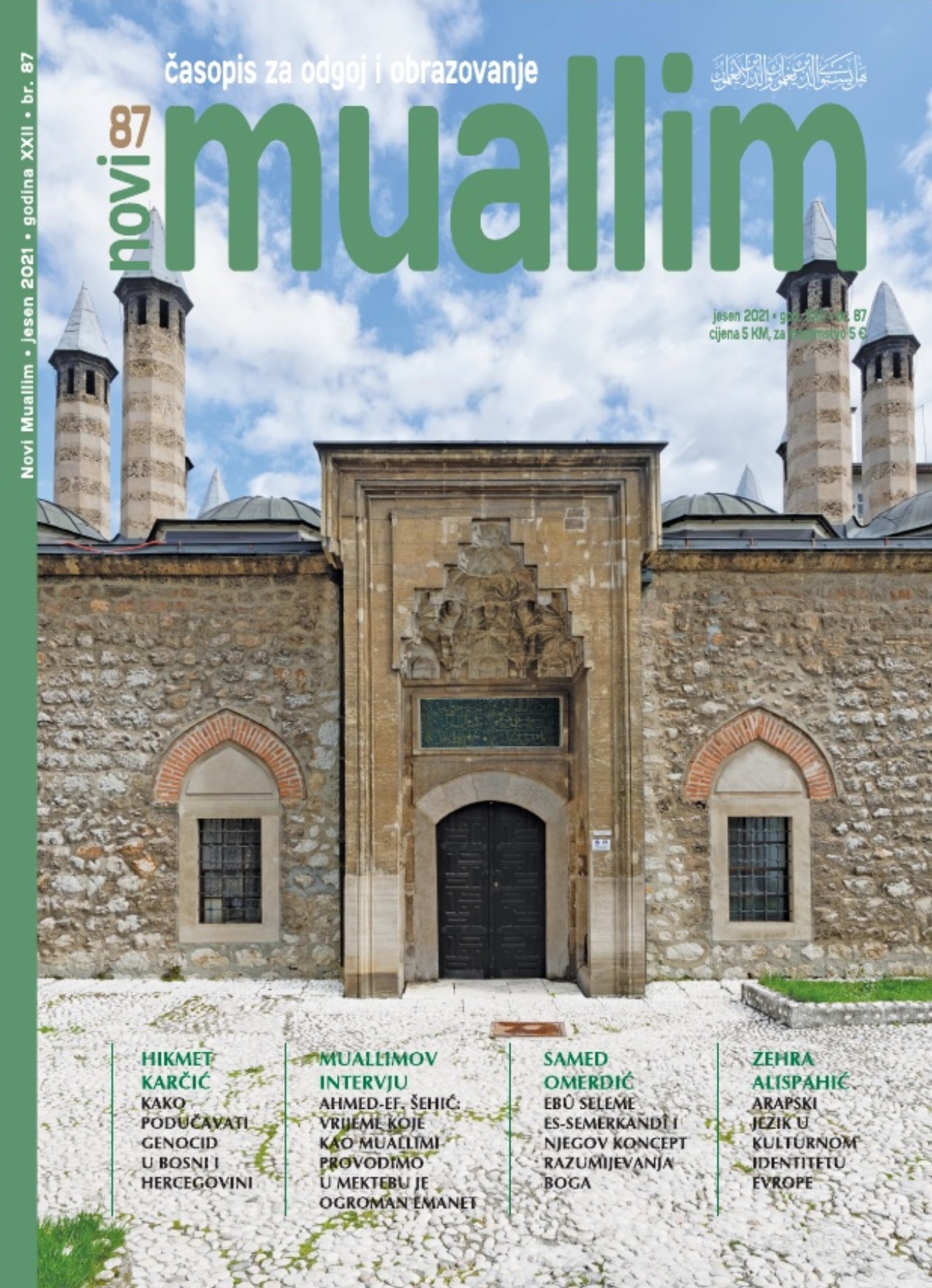ARABIC LANGUAGE IN CULTURAL IDENTITY OF EUROPE
DOI:
https://doi.org/10.26340/muallim.v22i87.1880Keywords:
revival, identity, culture, multicultural, language diversity, Arabic language, EuropeAbstract
UDK 811.411.21:316.72(4)
Great Islamic conquests of the seventh century opened up new horizons towards the East as well as towards the West for the Arabic language, as language of faith and science. Ever since the eighth century, Arabic language is in different ways and with varied levels of intensity, part of the European cultural identity. It was through Arabs and the Arabic language that Europe came in to contact with and was introduced to the heritage of ancient civilisations. Translations of major works from Greek to Arabic language as well as the other valuable and genuine commentaries by the translators, but also the original works written by the Arabic scientists have brought to Europe the spirit of scientific thought and research and created the space for European Renaissance which began with the meeting with the Arabs in Italy and Spain. Ottoman’s conquests brought the Arabic language to the Balkan Peninsula as well. It is estimated that there is 436.08 million Arabs in the world today. Arabs today live all around the world and the number of Arabs living outside the Arabic region is estimated 30 to 50 million. According to various statistical reports there are over 6 million Arabs living in Europe today. Statistics are changing on daily bases. The new geo-political trends in the world are, in various ways, bringing Europe in contact with Arabic language. New centres and departments for studies of Arabic language are being opened throughout Europe. The oldest surviving Semitic language should, although it is not officially yet, be recognised in the context of expected linguistic policies of European Union regarding the necessity of studying the languages of various language families within multicultural Europe and also in context of promoting differences and multicultural communications.
Downloads
Published
How to Cite
Issue
Section
License
Naknada:
a. Časopis ne naplaćuje naknadu za obradu članaka (APC) i naknadu za podnošenje članaka.
Autori koji objavljuju u ovom časopisu pristaju na sljedeće uvijete:
- Autori zadržavaju autorska prava i pružaju časopisu pravo prvog objavljivanja, pri čemu će rad jednu godinu po objavljivanju biti podložan licenci Creative Commons imenovanje koja omogućuje drugima da dijele rad uz uvijet navođenja autorstva i izvornog objavljivanja u ovom časopisu.
- Autori mogu izraditi zasebne, ugovorne aranžmane za ne-ekskluzivnu distribuciju rada objavljenog u časopisu (npr. postavljanje u institucionalni repozitorij ili objavljivanje u knjizi), uz navođenje da je rad izvorno objavljen u ovom časopisu.


